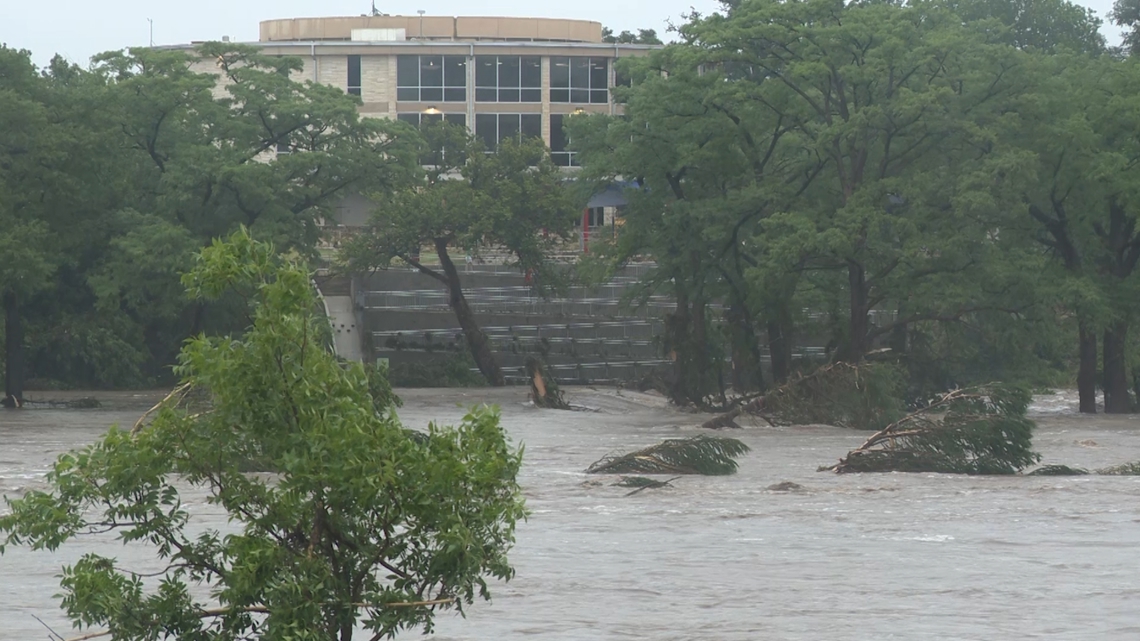
Will the July Fourth flooding in central Texas change any requirements for flood insurance? KENS 5 asked the experts.
KERR COUNTY, Texas — After the July Fourth flooding in Kerr County, the Federal Emergency Management Agency (FEMA) will be partnering with a Texas agency to reevaluate flood risk maps. But what does the July Fourth flooding mean for flood insurance requirements and insurance rates?
KENS 5 contacted the Insurance Information Institute and the Insurance Council of Texas to find out.
Will people living in FEMA-designated “Flood Hazard Areas” be required to get insurance after a flood?
No. Mark Friedlander with Insurance Information Institute told KENS there is no federal or state requirement to buy flood insurance even after a flooding disaster.
“There are no state and federal laws that require anyone in the country to have flood insurance,” Friedlander said.
If a person has a mortgage, however, experts said those rules change.
Friedlander told KENS 5, if a person has a mortgage, their mortgage lender may already require the person to get flood insurance if they are in a high-risk flood zone.
Richard Johnson with the Insurance Council of Texas told KENS 5 there is a federal law that requires you to purchase flood coverage if you live in a special flood hazard area (SFHA) and you have a federally backed mortgage.
Will people trying to repair their homes need to get flood insurance?
Possibly. Repairs are expensive. If a homeowner wants to get a bank loan to repair their home after a flooding event, Friedlander said the lender could require the homeowner to have insurance to get the loan
“In a high-risk zone, prone to flooding, there could be stipulations in the loan agreements. There is a possibility that you have to have flood insurance based on those loan agreements,” Friedlander said.
Federal loans, such as loans from the U.S. Small Business Administration, absolutely require homeowners to have flood insurance if the loan is for repairing flood damage.
Will the cost of flood insurance go up?
Possibly. The experts KENS 5 spoke with were split on this topic. Friedlander said it was likely but Johnson said it was unlikely.
“When you see a significant flood event in any area that will most likely cause a rise in future flood insurance premiums. That’s very common,” Friedlander said.
Johnson disagreed.
“Premiums don’t typically go up based on a single event, so I would not say that. Insurers take a wholistic approach to all events and risks in each area,” Johnson said. “Premium increase/decrease decisions account for the number of events, the cost of claims in an area, the cost to rebuild and repair homes in an area plus, all the individual factors that can impact premiums including claims history, rebuild cost for a home and history with a company.
Should a homeowner outside a flood risk zone still consider getting flood insurance?
Yes. Both Johnson and Friedlander said there are definite flood risks even away from the Texas coast and away from rivers. Heavy rain, a lack of drainage in urban areas, and broken water lines can all result in a flooded home.
“The problem we are facing with flood insurance is very few people choose to purchase it voluntarily. Some mortgage companies require it based on where you live, but in Texas only about 7% of homes purchase flood insurance and that gets even small as you get away from the coast and the Houston area. In San Antonio it is fewer than 1% of people purchase flood insurance, which is a real issue,” Johnson said.
“Every city in the country is prone to flooding and 90 percent of U.S. natural disasters involve flooding,” Friedlander said. “Your risk is much higher if you live along the Texas coast and are prone to storm surge but that doesn’t mean it can’t flood elsewhere.”
